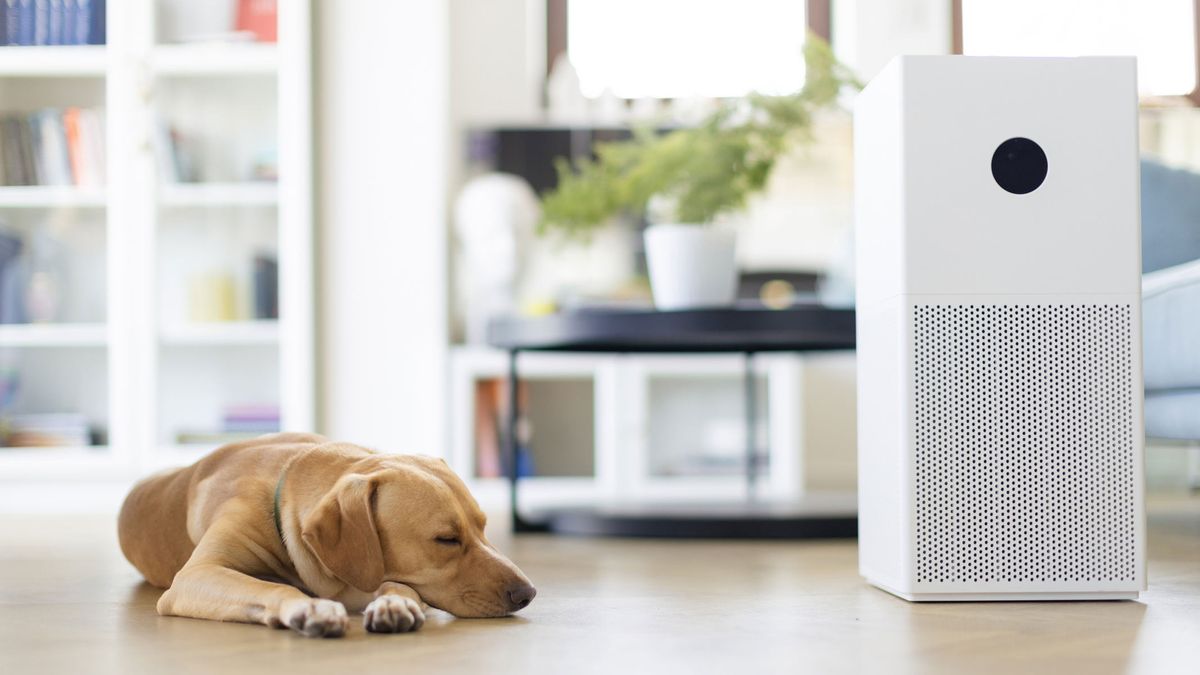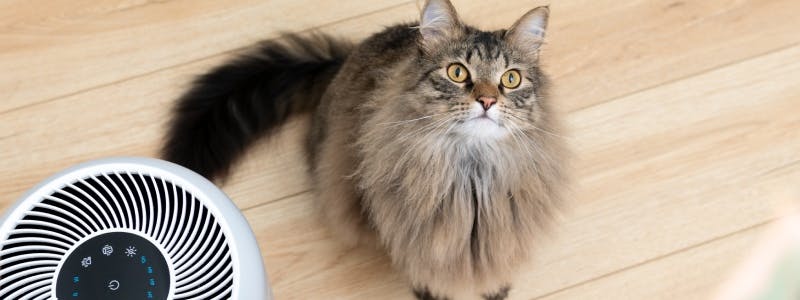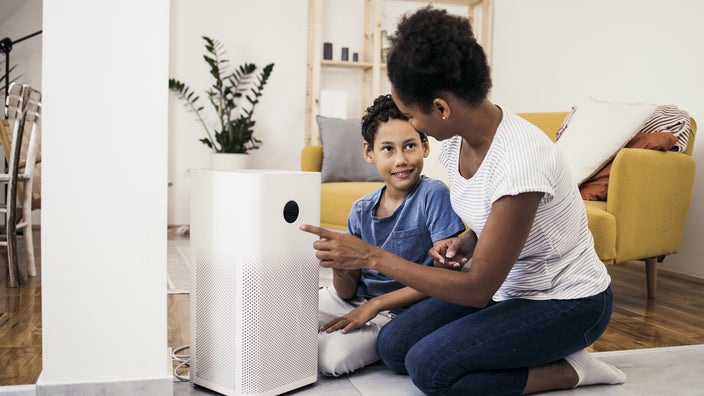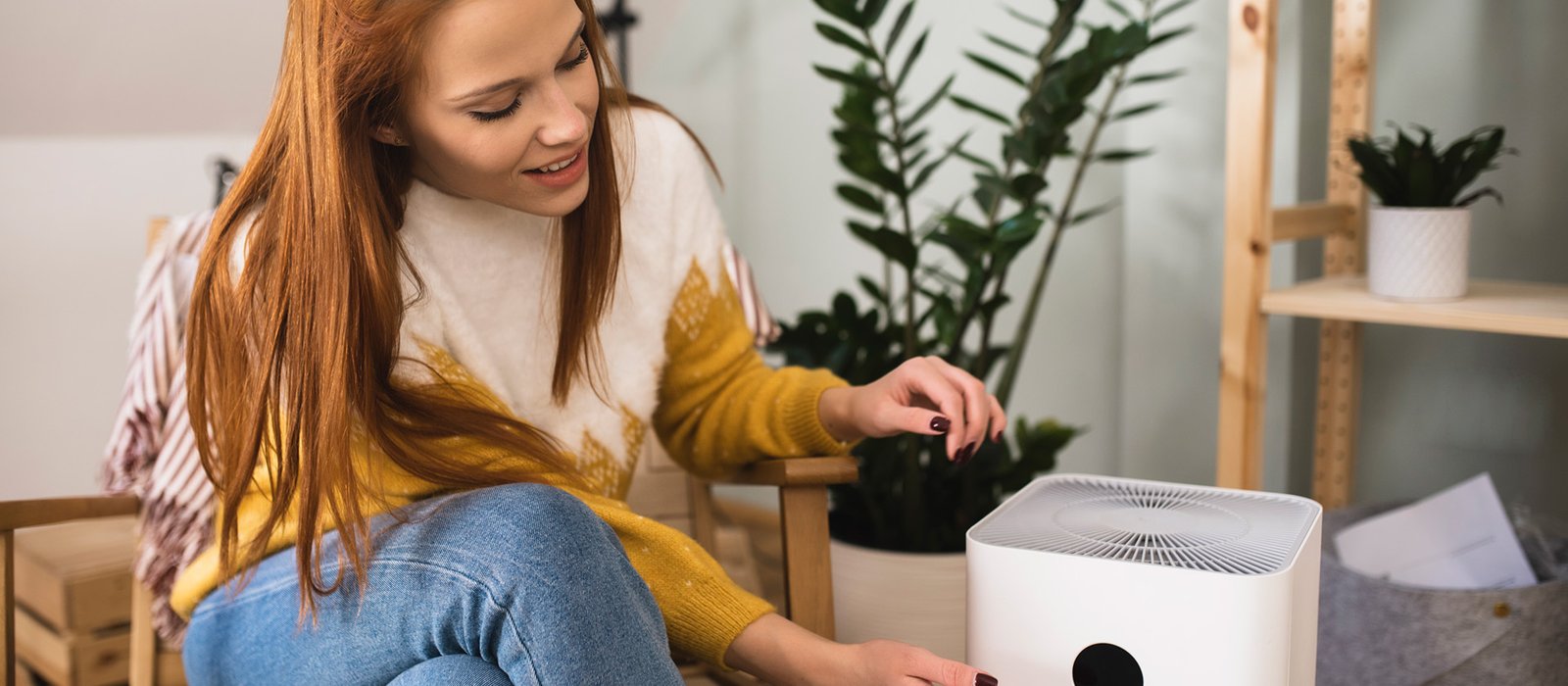Yes, air purifiers can help people with severe allergies. They remove airborne particles like pollen, dust, and pet dander, making the air cleaner.
Severe allergies can make life difficult, with constant sneezing, itchy eyes, and respiratory issues. Many people look for ways to lessen their symptoms. Air purifiers are a popular choice. These devices filter out allergens from the air, offering relief for those suffering.
By using an air purifier, individuals can breathe easier and experience fewer allergy attacks. This blog will explore the various benefits of air purifiers for allergy sufferers. Understanding how these machines work can help you decide if they are a good fit for your home.
Introduction To Air Purifiers
For people with severe allergies, the air they breathe is crucial. Air purifiers can help. They remove allergens from the air. This makes the environment cleaner and healthier. Understanding what air purifiers are and their importance can greatly benefit allergy sufferers.
What Are Air Purifiers?
Air purifiers are devices that clean the air. They remove contaminants, such as:
- Dust
- Pollen
- Pet dander
- Mold spores
- Smoke
These devices use filters and fans to trap and remove particles. The cleaned air is then circulated back into the room. Different types of filters include:
| Filter Type | Description |
|---|---|
| HEPA Filters | High-Efficiency Particulate Air filters. They capture 99.97% of particles. |
| Activated Carbon Filters | Absorb odors and gases. |
| UV Filters | Use ultraviolet light to kill bacteria and viruses. |
Importance For Allergy Sufferers
For people with allergies, air purifiers are essential. They reduce exposure to allergens. This can lead to fewer symptoms. It can also prevent severe allergic reactions. Here are some key benefits:
- Less nasal congestion: Cleaner air means fewer particles that can irritate the nasal passages.
- Reduced asthma attacks: Removing triggers like dust and pet dander can lessen asthma symptoms.
- Better sleep: Allergens can disrupt sleep. Cleaner air means more restful nights.
- Improved overall health: Breathing cleaner air supports overall well-being.
Investing in a quality air purifier can make a significant difference. For allergy sufferers, it is a step towards a healthier life.
How Air Purifiers Work
Understanding how air purifiers work can help people with severe allergies. These devices clean the air by removing harmful particles. Let’s explore the mechanisms that make this possible.
Filtration Mechanisms
Air purifiers use various filtration mechanisms. The most common is the HEPA filter. HEPA stands for High-Efficiency Particulate Air. These filters trap 99.97% of particles. This includes dust, pollen, and pet dander. Another method is activated carbon filters. These filters absorb odors and gases. They are effective in removing smoke and volatile organic compounds.
Some air purifiers use UV light. The UV light kills bacteria and viruses. This adds an extra layer of protection. There are also ionizers. Ionizers release charged particles into the air. These particles attach to allergens, making them easier to capture.
Types Of Air Purifiers
There are several types of air purifiers. HEPA air purifiers are the most popular. They are highly effective for allergy sufferers. Activated carbon purifiers are also common. They are great for removing odors and gases. UV air purifiers use ultraviolet light. This type is excellent for killing germs. Ionizers are another option. They release negative ions to clean the air.
Each type of air purifier has its own strengths. Some models combine multiple technologies. This provides the best air cleaning performance. Choosing the right type depends on your needs. Understanding these options can help you make an informed decision. This ensures you get the best relief from your allergies.
Reducing Allergens At Home
Reducing allergens at home is essential for people with severe allergies. Air purifiers help create a cleaner living space. They work by removing harmful particles from the air. This can lead to fewer allergy symptoms and improved health.
Common Household Allergens
Common household allergens include dust mites, pet dander, and pollen. Mold spores and smoke can also cause severe reactions. These allergens float in the air and settle on surfaces. They can trigger sneezing, itching, and breathing problems.
Effectiveness In Removing Allergens
Air purifiers are effective in removing allergens from the home. HEPA filters capture small particles like dust and pollen. They trap up to 99.97% of particles as small as 0.3 microns. This makes the air cleaner and safer to breathe.
Some air purifiers also use activated carbon filters. These filters remove odors and volatile organic compounds (VOCs). This helps in reducing allergy symptoms and improving indoor air quality. By using an air purifier, people can enjoy a more comfortable and healthier home environment.

Credit: www.livescience.com
Health Benefits
Living with severe allergies can be challenging. Air purifiers can offer relief. They work by removing allergens from the air. This can lead to significant health benefits. Let’s explore these benefits in detail.
Improved Respiratory Health
Clean air means better breathing. Air purifiers remove dust, pollen, and pet dander. These are common allergens. Breathing in fewer allergens helps your lungs. It reduces inflammation and irritation. This can lead to better overall respiratory health.
People with asthma often see improvements. Fewer asthma attacks and symptoms. Air purifiers can help maintain a healthier indoor environment. This is crucial for those with respiratory conditions.
Reduction In Allergy Symptoms
Allergy symptoms can be debilitating. Sneezing, coughing, and itchy eyes are common. An air purifier can reduce these symptoms. It traps airborne particles before you inhale them. This means fewer allergens in your system.
Better indoor air quality can improve your quality of life. You may sleep better at night. Feel more comfortable during the day. Air purifiers provide a simple solution. They make your home a safer place for those with severe allergies.
Selecting The Right Air Purifier
Choosing the right air purifier is crucial for people with severe allergies. The right device can help you breathe easier and reduce allergy symptoms. Understanding the key features and best options available will help make an informed decision.
Key Features To Consider
When selecting an air purifier, focus on the filtration system. HEPA filters are highly effective at trapping allergens. Look for a purifier with a true HEPA filter, which captures 99.97% of particles as small as 0.3 microns.
Consider the size of the room where you will use the purifier. Ensure the device has the capacity to clean the air in that space. Check the Clean Air Delivery Rate (CADR) rating. A higher CADR means faster air purification.
Noise levels are also important. Some purifiers can be loud and disruptive. Look for devices that operate quietly, especially for use in bedrooms. Energy efficiency is another factor. Energy Star-rated purifiers consume less power, saving on electricity bills.
Best Options For Severe Allergies
For severe allergies, the Honeywell HPA300 is a great option. It has a true HEPA filter and a high CADR rating. It’s suitable for large rooms and operates quietly.
The Levoit LV-H132 is another excellent choice. It’s compact, making it ideal for small rooms. It features a true HEPA filter and operates silently, ensuring peaceful nights.
The Dyson Pure Cool TP04 combines a HEPA filter with an advanced activated carbon filter. This model not only purifies the air but also functions as a fan. It’s perfect for those needing dual functionality.
For those on a budget, the GermGuardian AC4825 is a reliable option. It has a true HEPA filter and additional UV-C light for extra germ-killing power. It’s effective in smaller spaces and easy to maintain.

Credit: www.flonase.com
Maintenance And Care
Proper maintenance and care of air purifiers are essential for their effectiveness. Especially for those with severe allergies. Regular upkeep ensures the purifier works optimally. It also extends the lifespan of the device. Let’s explore the key aspects of maintaining your air purifier.
Regular Filter Changes
Filters are the heart of an air purifier. They trap dust, pollen, and other allergens. Over time, these filters get clogged. This reduces the purifier’s efficiency. Changing filters regularly is crucial. Most manufacturers recommend changing filters every 3-6 months. Check the user manual for specific guidelines. Some purifiers have indicator lights. These lights signal when it’s time for a filter change.
Cleaning And Upkeep
Apart from changing filters, cleaning the unit is important. Dust can accumulate on the exterior and interior parts. Wipe the exterior with a damp cloth weekly. For the interior, refer to the manual. Some units have washable pre-filters. Clean these as recommended. Ensure the purifier is turned off before cleaning. Regular cleaning prevents dust buildup. This enhances the purifier’s performance.
Additional Tips For Allergy Relief
Air purifiers can greatly help people with severe allergies. However, there are additional steps you can take to create a more comfortable living environment. Below are some tips to further reduce allergens in your home.
Creating An Allergy-free Zone
One effective way to minimize allergens is by creating an allergy-free zone. This could be your bedroom or another room where you spend a lot of time. Here are some tips to get started:
- Use hypoallergenic bedding and wash it regularly.
- Keep pets out of the allergy-free zone.
- Install dust-mite covers on pillows and mattresses.
- Vacuum the room with a HEPA filter vacuum cleaner.
- Keep windows closed to prevent pollen from entering.
These small steps can make a big difference in reducing allergens.
Combining Purifiers With Other Strategies
While air purifiers are beneficial, combining them with other strategies can maximize relief. Here are some methods to consider:
- Regular Cleaning: Clean your home frequently to remove dust and allergens.
- Ventilation: Use exhaust fans in bathrooms and kitchens to reduce moisture and mold.
- Humidity Control: Use a dehumidifier to maintain indoor humidity levels below 50%.
- Allergy-Proof Furnishings: Choose furniture and flooring that are easy to clean and less likely to harbor allergens.
Combining these strategies with an air purifier can significantly improve air quality and reduce allergy symptoms.

Credit: www.goodrx.com
Frequently Asked Questions
What Are The Benefits Of Air Purifiers?
Air purifiers remove allergens like dust, pollen, and pet dander. They improve air quality and reduce allergy symptoms. Clean air can lead to better sleep and overall health.
How Do Air Purifiers Help With Severe Allergies?
Air purifiers capture airborne allergens, preventing them from being inhaled. This reduces allergy symptoms like sneezing, itching, and congestion. Consistent use can significantly improve quality of life for allergy sufferers.
Are Air Purifiers Effective For Pet Allergies?
Yes, air purifiers can effectively reduce pet dander in the air. They trap particles that cause allergic reactions. This helps in creating a more comfortable environment for those with pet allergies.
Do Air Purifiers Remove Dust Mites?
Air purifiers with HEPA filters can remove dust mites from the air. They trap these tiny particles, reducing exposure and allergy symptoms. Regular use can help maintain a cleaner, allergen-free home.
Conclusion
Air purifiers offer great relief for severe allergy sufferers. They remove allergens, improving air quality. Cleaner air means fewer symptoms and better health. Investing in a good air purifier can make a big difference. Breathe easier, sleep better, and enjoy life more.
Consider an air purifier for a healthier home.
Rakib Sarwar is a Registered Pharmacist and a reputed health and wellness blogger. He has a great interest in Air purifiers.
